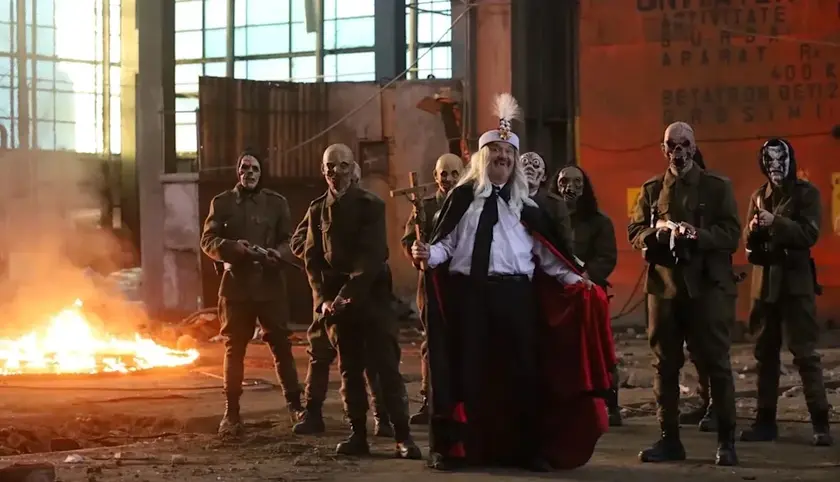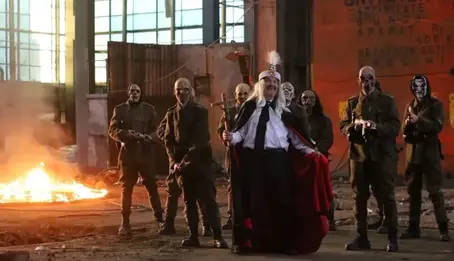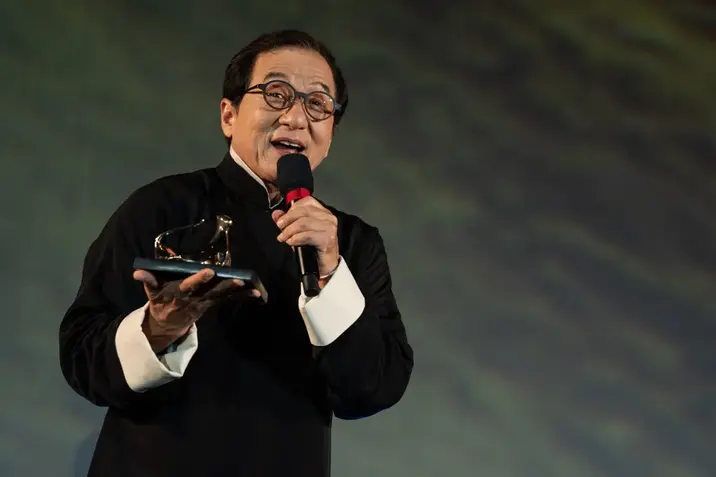T4K3.news
Dracula at Locarno
Radu Jude uses AI to probe history and art in a bold three hour film.

Locarno project uses artificial intelligence to interrogate history and art through a vampiric collage
Dracula Puts AI Under the Lens in Jude Bold Three Hour Saga
Locarno hosts the premiere of a bold three hour film that uses artificial intelligence as its central instrument of satire. The work unfolds with a chorus of computer generated Vlad the Impalers addressing the audience and inviting participation. Shot on an iPhone, the wraparound frame centers on a Transylvanian director named Tanta who stages a low rent show that riffs on the legend. The AI system then stitches together riffs from past films and texts, creating scenes that nod to Nosferatu and Coppola while skewering the idea of image making itself. The result is a provocative claim that the culture that made AI is already feeding on its own myths and the question becomes what the use says about us.
Other segments mix humor with critique. A piece titled Eutrophia set in a youth hospital reveals a vampire demanding a drink from a patient and turning the moment into a cheeky satire. A sober adaptation of a Romanian romance is undercut by a rough AI riff. The sequence called Das Kapital redefines Vlad as a chief of a gaming firm, a satire on work, value and online fame. The film does not pretend to offer a neat stance; it tests patience with the length while staying bold and inventive. The thread argues that AI reveals how culture endures only when it is reused and misread.
Key Takeaways
"AI image making exposes how history can be rewritten for the moment"
highlight from the wraparound frame about AI effect on memory
"The world is a vampire that drains the past"
the film references a recurring line as a metacommentary on appetite
"Art will endure by bending to the new tools not by hiding from them"
editorial takeaway on art and technology
From the start the film treats AI as a mirror rather than a mere tool. The humor lets the viewer feel the cost of making images at scale while keeping a steady gaze on the past. The work is messy and brilliant at once, a blend that asks for attention rather than simple amusement. It moves between high art references and street level satire to insist that the strongest use of new tech lies in exposing what remains alive in memory and tradition.
Beyond jokes the piece raises hard questions about authorship and control in the age of AI. It hints that some strands of culture may not survive if they refuse to adapt. The final stretch ties capital and online appetite to a wider worry about how taste is formed in a data driven world. The tone stays fearless, inviting debate rather than surrendering to easy answers.
Highlights
- AI image making exposes how history can be rewritten for the moment
- The world is a vampire that drains the past
- Art will endure by bending to the new tools not by hiding from them
Sensitive topics risk for satire on politics and history
The work touches on political history and contemporary tech culture in provocative ways. It may trigger backlash from viewers who view the satire as disrespectful or divisive. Explicit scenes and public figures referenced in a satirical frame could spark controversy in some communities.
The film asks what counts as art when machines churn images at scale.
Enjoyed this? Let your friends know!
Related News

Dracula fuels festival talk

Dracula uses AI to roast AI

Emma Thompson at Locarno

Chan critiques money driven studios

Emma Thompson reveals Trump date offer at Locarno

Emma Thompson recounts Trump date invite at Locarno

Emma Thompson recounts Trump call on Primary Colors set

Slash backs Deathstalker requel with practical effects
